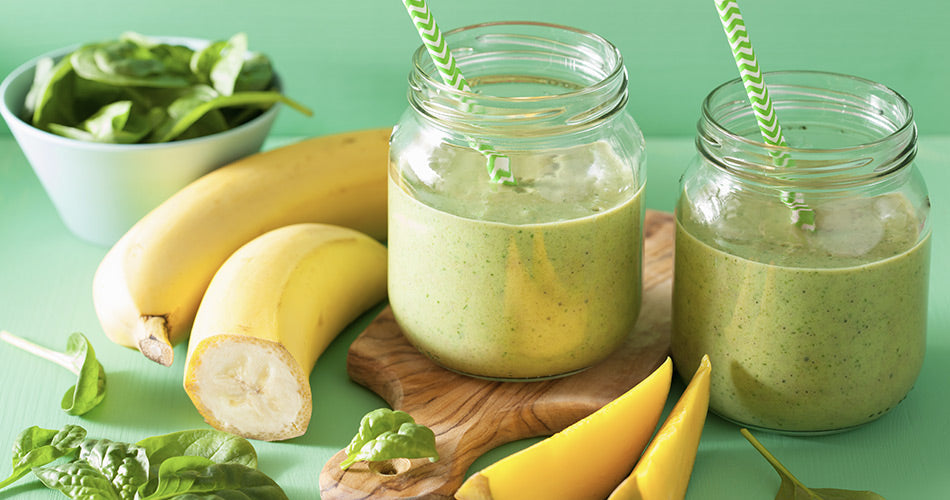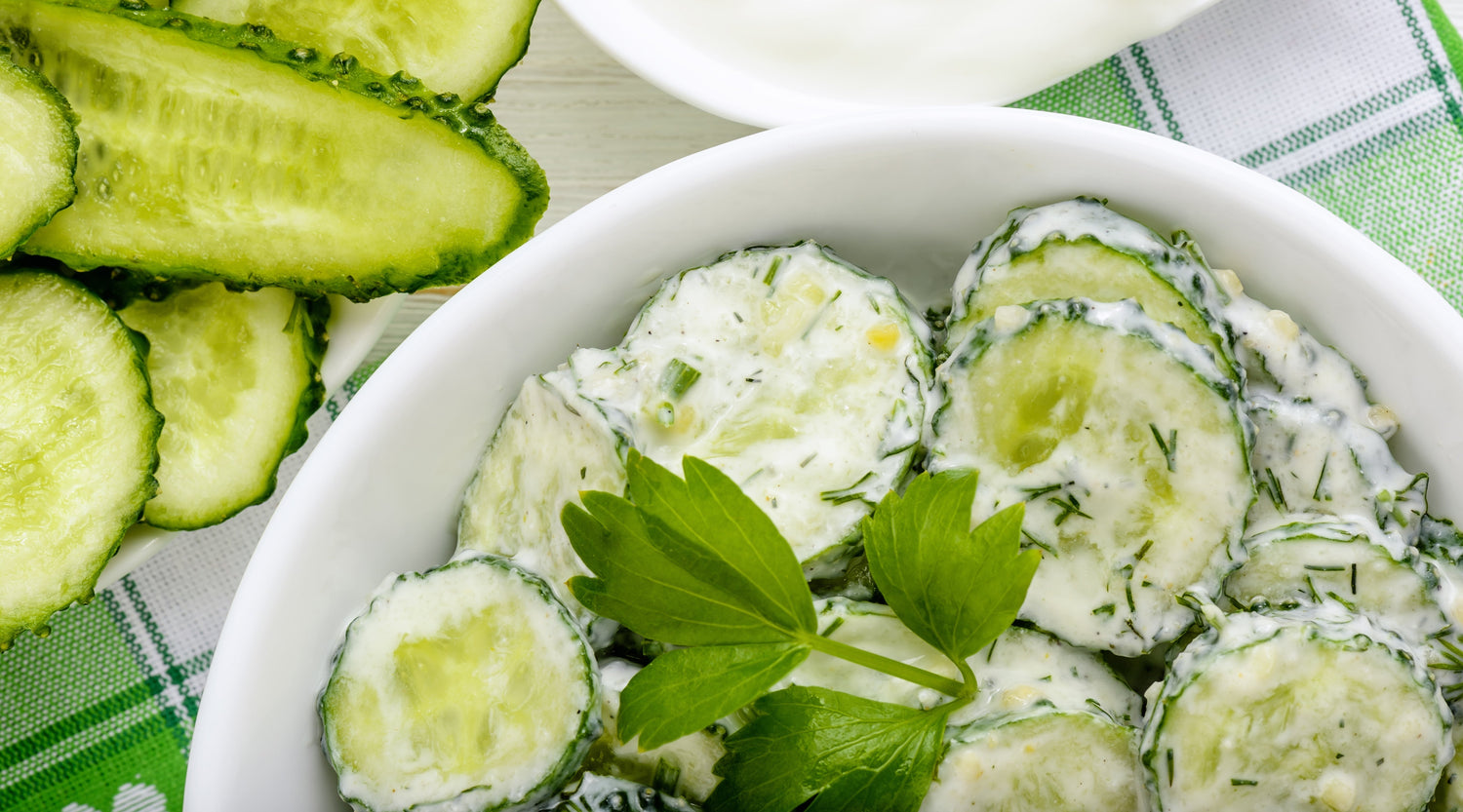Understanding the Difference and Benefits for Your Gut Health
Have you ever thought about how amazing your body is? How perfect and complete, how fragile and vulnerable, but at the same time strong and guarded. Break your skin and bleed, and your body will close the wound. Tear a tendon and it will heal stronger than before. Did you know that when you are sick and have a stuffy nose, you will never have both nostrils clogged at the same time? The body is a work of art and a marvel.
And then there’s the gut. I’ve studied nutrition and healthy cooking, and from what I’ve learned, a healthy gut is the solution to many of our problems. If you have a healthy gut, you are generally healthy. A heathy gut will balance your hormones, keep your energy levels high, make you more alert, maintain weight, absorb more nutrients, and avoid toxins and chemicals, making you a happier and healthier version of you.
When it comes to gut health, you’ve probably heard the terms "prebiotics" and "probiotics" tossed around. While they sound similar and both contribute to a healthy gut, they have distinct roles in our digestive system. So, what’s the difference between the two, and how can they help you maintain a balanced microbiome?
What Are Prebiotics?
Prebiotics are non-digestible food components, usually fibers, that promote the growth and activity of beneficial bacteria (probiotics) in your gut. They act as food for these “good” bacteria, helping them thrive and proliferate, which ultimately improves digestion, boosts immunity, and enhances overall gut health.
The most common prebiotics are fibers like inulin and oligosaccharides, which can be found in a variety of plant-based foods. Think fruits, vegetables, whole grains, and legumes. Foods like bananas, garlic, onions, leeks, asparagus, and chicory root are excellent sources of prebiotics.
Key Benefits of Prebiotics
- Supports Healthy Gut Flora: By feeding beneficial bacteria, prebiotics help maintain a balanced gut microbiome, preventing the overgrowth of harmful bacteria.
- Boosts Immune System: A healthy gut microbiome is closely linked to a stronger immune system. Prebiotics help stimulate the production of certain immune cells.
- Improves Digestive Health: By promoting the growth of good bacteria, prebiotics can aid in digestion and help manage constipation and bloating.
- Supports Weight Management: Some studies suggest that prebiotics can help regulate appetite and improve metabolism, contributing to weight management.
What Are Probiotics?
Probiotics, on the other hand, are live microorganisms—mainly bacteria or yeast—that provide health benefits when consumed in adequate amounts. These “good” bacteria help maintain the balance of your gut microbiome by directly increasing the number of beneficial bacteria in your digestive system.
You’ll find probiotics in fermented foods such as yogurt, kefir, sauerkraut, kimchi, miso, and kombucha, as well as in dietary supplements. The most common strains of probiotics include Lactobacillus, Bifidobacterium, and Saccharomyces boulardii.
Key Benefits of Probiotics
- Restores Gut Flora Balance: Probiotics help restore a healthy balance of gut bacteria, which can be disrupted by antibiotics, illness, or poor diet.
- Digestive Support: Probiotics are known for helping with conditions like irritable bowel syndrome (IBS), diarrhea, and constipation.
- Mental Health Benefits: Emerging research suggests that probiotics may have a role in mental health by supporting the gut-brain axis, potentially reducing anxiety and depression symptoms.
- Immune System Boost: Probiotics support the immune system by encouraging the production of certain antibodies and inhibiting the growth of harmful pathogens.
The Key Difference
At their core, the difference between prebiotics and probiotics boils down to one simple concept:
- Prebiotics are the food that nourishes the beneficial bacteria in your gut, ensuring they thrive and function at their best.
- Probiotics are the live bacteria themselves that introduce more beneficial organisms into your digestive system.
In other words, prebiotics create an environment in which probiotics can flourish. They’re both crucial for supporting gut health, but they perform different, complementary roles.
How to Include Prebiotics and Probiotics in Your Diet
For optimal gut health, we encourage you to include both prebiotics and probiotics in your diet to have synergistic effects on your microbiome. Both prebiotics and probiotics are essential for maintaining a healthy gut and, by extension, a healthy body. While prebiotics fuel beneficial bacteria, probiotics introduce new, healthy bacteria to the gut. Together, they work synergistically to improve digestion, strengthen immunity, and even influence mental health.
I know this is a lot to keep in mind, but here’s an important question: are you eating enough fiber? Odds are, probably not. Fiber is one of those foods most lacking in our diet today, so what can you do? Take a supplement that has probiotics. Great!!! But is this enough? If you are not getting probiotics from your food, chances are you are not getting prebiotics from your food either, and both rely on a solid foundation: fiber. No matter how you look at it, most of us are not getting enough fiber, and the benefits go beyond digestion—adding fiber to our diet can help reduce cholesterol levels and support overall health.
Interestingly enough, the next product just björn will introduce is a high fiber prebiotic that helps nourish and promote the growth of beneficial bacteria in the gut, and helps you maintaining good levels of cholesterol as well as weight management. Stay tuned—I am so excited to tell you more about it very soon!
Best,
Björn








